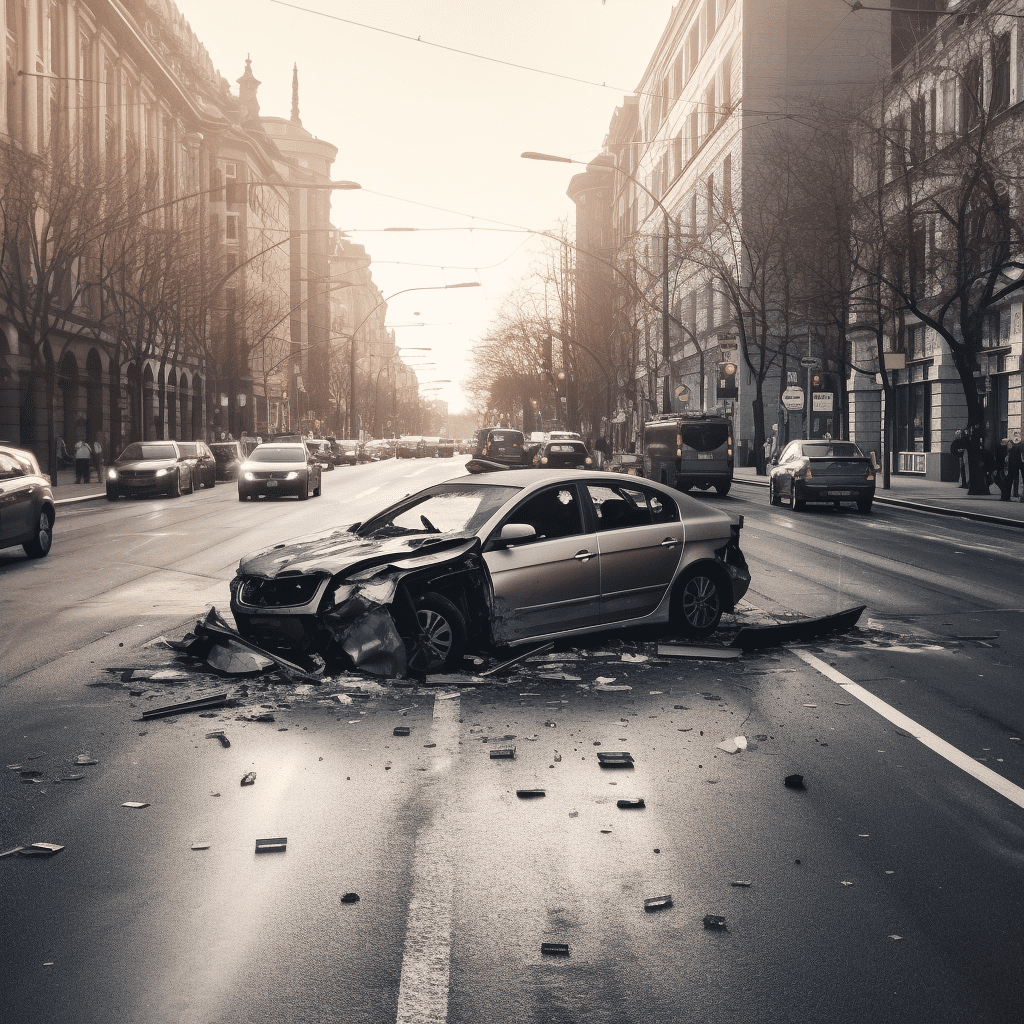If you frequently travel in the DFW area you know how hectic traffic can get. Unfortunately, with the high levels of traffic, car accidents happen every day, and when they do, they often lead to a whole host of financial losses for everyone involved.
From damaged vehicles to injuries that lead to expensive medical bills, you will find your losses quickly add up. When this happens, it’s time to take specific steps to learn more about your legal options for financial recovery. A Texas car accident lawyer can guide you through the process and help you explore the best path toward compensation.
Key Takeaways
- Texas courtrooms operate on an at-fault basis, which means the at-fault party pays for the financial losses associated with the crash.
- Texas courtrooms also use a modified comparative negligence standard, meaning you can only pursue compensation if you’re less than 50% at fault for a Texas car accident.
- Texans injured in car accidents can collect both economic and non-economic compensation in the form of medical bills, lost wages, property damages, pain and suffering, and more.
- A Texas car accident lawyer can help you determine if pursuing a legal claim is worth your time and effort based on the circumstances of your accident and the extent of your losses.
Schedule A Free Case Consultation
Texas Car Accident Guide
- Key Takeaways
- What Should I Do After a Car Accident?
- How to Prove Negligence in a Car Accident
- Who is At Fault in a Car Accident?
- How a Texas Car Accident Lawyer Can Help
- Compensation in a Texas Car Accident Injury Claim
- What is the Statute of Limitations for a Car Accident Lawsuit?
- Contact DFW Injury Lawyers Today: All Consultations Are 100% Free and Confidential
In Texas, identifying fault in a car accident could be the difference between being able to seek out a legal claim for compensation and needing to bear the costs of your accident on your own.
Here at DFW Injury Lawyers, our team can help you begin to unpack what caused your crash and who might be legally responsible for the financial consequences of your accident. Find out more about us, how our firm handles car accident claims, and how you can work toward identifying fault in your accident.
In Texas, a reportable crash occurs every 57 seconds.
What Should I Do After a Car Accident?

In 2022, there were 33,980 car crashes in Dallas alone. If you, unfortunately, add to this statistic one day, you need to know how to handle the situation in a way that protects your rights — and your finances. One misleading statement to the police or a failure to act could risk future legal claims.
With that in mind, you’ll want to take specific steps after a car accident. Most importantly, report your accident to the police if any other vehicles are involved. (In Texas, any crashes that result in injury, death, or damage over $1,000 must be reported.) This step will ensure that officers create an official police report detailing an accident, who was involved, and what police believed happened.
Next, seek out medical care. If you don’t get timely medical treatment, you’re not only putting any future claim at risk, but you could also make possible injuries worse.
After you realize the extent of your injuries, start documenting and adding up your losses. Consider everything you’ve lost, from paying for medical care to losing time off work. If losses are significant, take that as a sign to consider your legal options for financial compensation. Consider talking with a local car accident lawyer to discuss your situation in more detail.
In Texas, any crashes that result in injury, death, or damage over $1,000 must be reported.
How to Prove Negligence in a Car Accident
In the context of a Texas car accident, the at-fault party is the legally negligent party. Negligence is defined as the failure to uphold a legal duty of care towards other motorists. In other words, it means that the driver failed to consider the safety of other motorists when they caused an accident.
Under the law, there are four elements of negligence:
- A legal duty to provide for the care and safety of another party
- A breach in the legal duty of care
- This breach in the legal duty of care directly caused an accident
- The accident led to specific damages
To have a solid case, you must prove the elements of negligence described above.
Regarding a Texas car crash, all motorists automatically assume a legal duty to provide for the care and safety of other drivers and pedestrians.
To establish a breach of the legal duty of care, you must show that the other driver was at fault. They may have violated a traffic law or made an error that caused the crash. To prove damages, you must show documentation detailing your financial losses.
What if There are Multiple Causes Behind My Car Accident Injuries?
When multiple causes contributed to your accident, Texas courtrooms will use the “substantial factor test.” They will consider the defendant’s conduct, your conduct, and any independent events that may have caused the accident.
Then, they’ll consider whether each type of conduct was a substantial factor in causing the injuries and accident. Each party is assigned a percentage of fault for the crash.
What if Two Parties are Jointly Responsible for My Car Accident Injuries?
If two parties are equally responsible for a car accident, both parties will be held equally liable for the financial fallout.
When at least two individuals’ negligence resulted in a car accident, they could be held jointly and severally liable. That means if negligent Person A can’t pay the car accident lawsuit settlement, negligent Person B will have to cover the other’s obligation.
What is an Unforeseeable Injury? Can I Sue a Negligent Party for Unforeseeable Injuries?
An unforeseeable injury is one that results from an unexpected accident that could not have been prevented. In general, injured individuals cannot sue a negligent party for unforeseeable injuries.
By definition, negligence can only occur when the person could have taken reasonable steps to prevent the accident by upholding their legal duty of care. Where there is no breach of the legal duty of care, there is likely no negligence.
I Had a Pre-Existing Physical Condition Before the Car Accident that Got Worse Due to the Accident. Can I Sue for the Full Extent of the Damages?
You could still sue for the full extent of your damages even if you have a pre-existing condition under the eggshell skull rule. Consult with an experienced car accident lawyer in these situations to ensure you know your rights and options.
Can I Sue an Employer for Their Employee’s Negligence in a Car Crash?
Yes. Under vicarious liability laws, you can sue an employer for an employee’s negligence when the employee acted negligently during their scope of employment.
In other words, if the employee was driving as part of their job responsibilities and was acting negligently, the employer might also be held responsible.
Can I Sue a Social Host Who Got Me Drunk and Indirectly Led to My Car Wreck?
Under the social host liability law in Texas, a social host can be held legally liable for the injuries of an intoxicated third party or minor in some circumstances. Meet with a lawyer for more details on this law and how it might apply to your situation.
Who is At Fault in a Car Accident?
Sometimes, the at-fault driver is easy to identify when negligence is clear. At other times, however, both parties may have been somewhat at fault for a crash.
For instance, one driver may have been talking on the phone while another driver ran a red light. Both drivers weren’t paying attention to traffic, but the driver who ran the red light will be considered more at fault than the other driver.
In these situations, Texas courtrooms go off a modified comparative negligence standard when determining fault in a car accident.
This means that:
- Injured individuals can only seek out a claim when they are less than 50% at fault.
- The injured individual’s compensation award is reduced based on their percentage of fault.
- If both parties are equally at fault, the injured person can receive up to half of the compensation.
When more than two parties are involved, each individual party’s percentage of negligence is compared to the total negligence of all the parties involved to determine their overall compensation award.
For more detailed information on how this standard might impact your compensation award, reach out to a car accident attorney.
How a Texas Car Accident Lawyer Can Help
Not only can a car accident lawyer help you understand how your own percentage of fault could impact your compensation award, but they can also prove invaluable throughout your entire claim, too.
First of all, a talented injury lawyer can help you make an informed choice on whether to seek out a claim based on the facts surrounding a case. This can help you avoid starting a claim that won’t be successful. From there, your car accident attorney can use their experience to help you collect evidence and documentation to strengthen your claim.
Once your case is ready, your lawyer can help you submit an official claim, negotiate with the other party, and represent you in court if your case goes to trial.
Compensation in a Texas Car Accident Injury Claim
After a car accident injury, you may claim compensation for financial losses directly related to your crash.
This might include losses that came in the form of:
- Medical Expenses (past and future)
- Physical Pain and Mental Anguish (past and future)
- Physical Impairment (past and future)
- Disfigurement (past and future)
- Loss of Earning Capacity (past and future)
- Property Damage
In very rare situations, punitive damages may be awarded when the other party’s negligence was extreme. To get an idea of what these losses can be valued at, check out our firm’s notable past case results.
The Texas Department of Transportation routinely reports at least one traffic fatality every day. If a loved one was killed in a Texas car accident, you might seek out damages in the form of a wrongful death lawsuit. Compensation can cover burial costs, a loss of support, and more.
What is the Statute of Limitations for a Car Accident Lawsuit?
Statute of limitation laws limit the amount of time you have to seek out a claim after experiencing a personal injury and accident. The statute of limitations in Texas is typically two years from the date of the car accident. If you exceed this time period, you likely won’t be legally eligible to seek compensation. However, exceptions to the typical statute of limitations exist, so you need an experienced lawyer to review the facts of your case to determine all applicable deadlines.
A lawyer can help ensure you file your claim in a timely manner.
Contact DFW Injury Lawyers Today: All Consultations Are 100% Free and Confidential

Have you recently experienced a car wreck in Dallas or a surrounding area? Did your accident result in an injury and substantial losses? If so, identify what parties may be potentially liable in your situation. To do so, you’ll need to know more about how to determine fault in a car accident. A Texas personal injury lawyer can help you navigate the process and ensure you identify all liable parties to seek the compensation you deserve.
The good news is that our team here at DFW Injury Lawyers has extensive experience helping past clients identify what caused their accidents, find the evidence to back up those statements, and file successful personal injury claims.
If you’re considering filing a Dallas car accident claim, schedule your free and confidential case evaluation with our office now to get started.